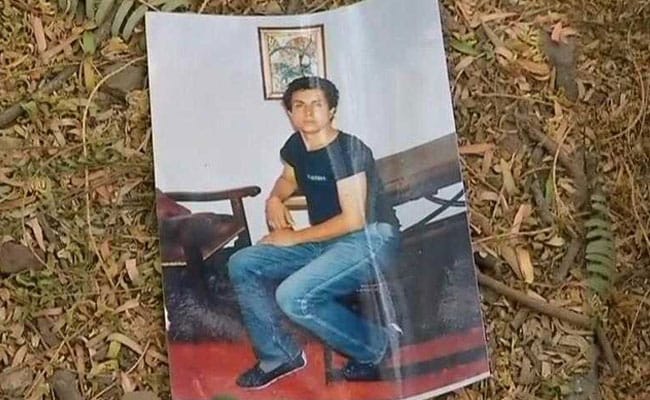
Ali Raza's body was found on September 2, lying in an old, broken-down couch.
New Delhi:
In forests in the heart of Delhi, a family of three claiming to be the last descendants of the royal family of Oudh or Awadh in Uttar Pradesh lived for years, isolated and cloaked in mystery. Weeks ago, the last survivor of the family, Ali Raza, who claimed to be the prince of Oudh, died at the tumbledown structure that was "Malcha Mahal".
His body was found on September 2, in an old, broken-down couch at the "palace" allotted to his family by the government in 1985. The police believe he was about to have a meal when he died. He was found only two days later. The police reportedly waited for 72 hours for anyone to come and claim the body, but no one did.
The prince's sister Sakina had died some months ago in the 700-year-old building that has no doors or windows or even electricity and water.
The siblings made headlines in the 1990s when it was discovered that they had lived with their mother Begum Wilayat Mahal's corpse for weeks.
 The feisty Begum, her son and daughter surfaced in the 1980s and parked themselves at the VIP lounge of a guest house at the New Delhi Railway Station, demanding ancestral land they claimed had been snatched from them in Lucknow.
The feisty Begum, her son and daughter surfaced in the 1980s and parked themselves at the VIP lounge of a guest house at the New Delhi Railway Station, demanding ancestral land they claimed had been snatched from them in Lucknow.
The tenth and last Nawab of Awadh, Wajid Ali Shah, ruled for nine years till 1856, and died near Kolkata in 1887.
The Begum claimed she and her children were the last surviving members of the grand Awadh royalty. The family ended its sit-in protest after it was allotted the Malcha Mahal, a hunting lodge deep in forests right next to the diplomatic enclave of Chanakyapuri. The Begum, her son and daughter started living there in complete isolation, protected by ferocious dogs.
Ali Raza, who also called himself Cyrus, said his mother had consumed crushed diamonds from her jewels to kill herself in 1993.
Old pictures show the Begum posing inside the lodge, its beds and floors covered in Persian carpets, and expensive porcelain crockery laid out on a table. The building only had arches and anyone could walk in.
"She hung a metal sign outside: Entry restricted. Cautious of hound dogs. Proclamation: Intruders shall be gundown (sic)," according to a BBC journalist.
The family fiercely guarded its privacy and let the dogs loose on "intruders". The three passionately believed in their exalted blue-blood status, strongly avoiding "commoners".
The prince's death was discovered only when a police team from Nagaland posted near the Malcha Mahal, told the Delhi police that he had not been spotted roaming the jungles for a while.
In the last few years, the prince had been reduced to begging for food and depending on the goodwill of the few who knew the family.
His body was found on September 2, in an old, broken-down couch at the "palace" allotted to his family by the government in 1985. The police believe he was about to have a meal when he died. He was found only two days later. The police reportedly waited for 72 hours for anyone to come and claim the body, but no one did.
The prince's sister Sakina had died some months ago in the 700-year-old building that has no doors or windows or even electricity and water.
The siblings made headlines in the 1990s when it was discovered that they had lived with their mother Begum Wilayat Mahal's corpse for weeks.

Ali Raza was also known as Cyrus
The tenth and last Nawab of Awadh, Wajid Ali Shah, ruled for nine years till 1856, and died near Kolkata in 1887.
The Begum claimed she and her children were the last surviving members of the grand Awadh royalty. The family ended its sit-in protest after it was allotted the Malcha Mahal, a hunting lodge deep in forests right next to the diplomatic enclave of Chanakyapuri. The Begum, her son and daughter started living there in complete isolation, protected by ferocious dogs.
Ali Raza, who also called himself Cyrus, said his mother had consumed crushed diamonds from her jewels to kill herself in 1993.
Old pictures show the Begum posing inside the lodge, its beds and floors covered in Persian carpets, and expensive porcelain crockery laid out on a table. The building only had arches and anyone could walk in.
"She hung a metal sign outside: Entry restricted. Cautious of hound dogs. Proclamation: Intruders shall be gundown (sic)," according to a BBC journalist.
The family fiercely guarded its privacy and let the dogs loose on "intruders". The three passionately believed in their exalted blue-blood status, strongly avoiding "commoners".
The prince's death was discovered only when a police team from Nagaland posted near the Malcha Mahal, told the Delhi police that he had not been spotted roaming the jungles for a while.
In the last few years, the prince had been reduced to begging for food and depending on the goodwill of the few who knew the family.
Track Latest News Live on NDTV.com and get news updates from India and around the world

